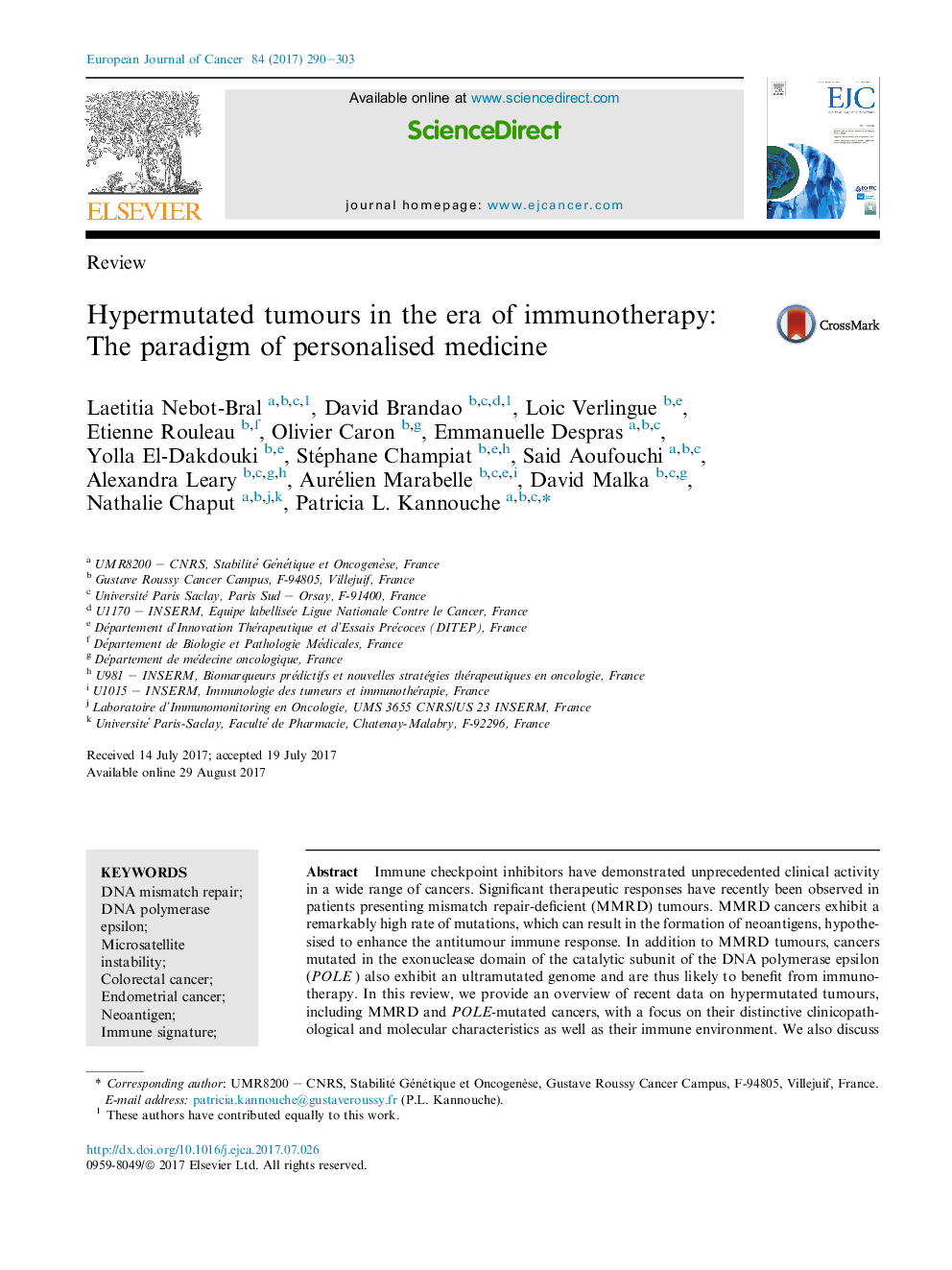| Article ID | Journal | Published Year | Pages | File Type |
|---|---|---|---|---|
| 5526212 | European Journal of Cancer | 2017 | 14 Pages |
Immune checkpoint inhibitors have demonstrated unprecedented clinical activity in a wide range of cancers. Significant therapeutic responses have recently been observed in patients presenting mismatch repair-deficient (MMRD) tumours. MMRD cancers exhibit a remarkably high rate of mutations, which can result in the formation of neoantigens, hypothesised to enhance the antitumour immune response. In addition to MMRD tumours, cancers mutated in the exonuclease domain of the catalytic subunit of the DNA polymerase epsilon (POLE) also exhibit an ultramutated genome and are thus likely to benefit from immunotherapy. In this review, we provide an overview of recent data on hypermutated tumours, including MMRD and POLE-mutated cancers, with a focus on their distinctive clinicopathological and molecular characteristics as well as their immune environment. We also discuss the emergence of immune therapy to treat these hypermutated cancers, and we comment on the recent Food and Drug Administration approval of an immune checkpoint inhibitor, the programmed cell death 1 antibody (pembrolizumab, Keytruda), for the treatment of patients with metastatic MMRD cancers regardless of the tumour type. This breakthrough represents a turning point in the management of these hypermutated tumours and paves the way for broader strategies in immunoprecision medicine.
